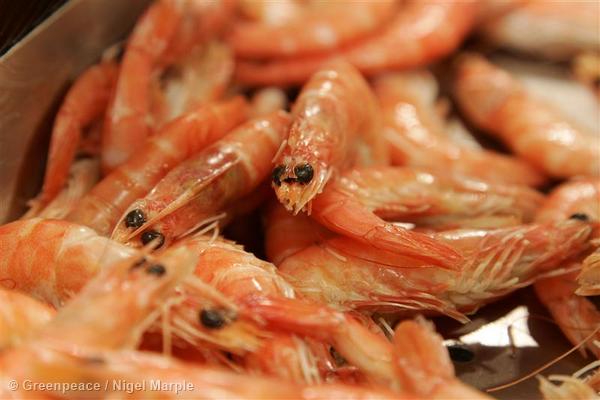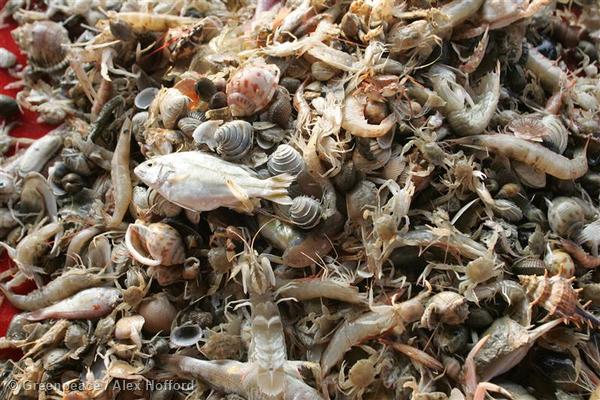Like to throw a prawn on the barbecue?
If we give a moment’s thought to where it came from, we might imagine a sunburnt Australian fisher skillfully casting his net into coastal waters and hauling in his humble catch.
Nothing, I’m afraid, could be further from the truth.

Over 60 per cent of prawns sold to Australians are imported from Asia.
Every aspect of the imported prawn trade is stomach turning; from the reckless bottom trawling of the ocean floor to the putrid factories that process the catch into feed for prawns.
According to the Australian prawn farming industry, some retailers are mislabelling imported prawns as Australian.
The bloated appetite for prawns in the West drives the demand for cheap, abundant prawns. In Thailand for example, farmed in humid lagoons, millions of prawns are fed on what the industry calls ‘trash fish’.
To find this trash fish, trawler boats use weighted nets to dredge the sea floor for anything and everything they can find. The practice is hugely destructive and entire tracts of marine life are effectively wiped out and ecosystems that might have been there for centuries are destroyed – all to be ground up into fish meal, to satiate the multiplying prawns back at the lagoon.
The true cost of cheap prawns is incredibly damaging to the environment. Even in Australia, prawn trawling can result in damaging levels of bycatch. Australian farmed prawns, on the other hand, have a relatively low impact on the environment.
As consumers, we have the power to dismantle this destructive supply chain. If our labels tell us more about what our seafood is, where it comes from and how it was caught – we can make better decisions that help to conserve our oceans, marine life and local jobs.
Let’s stand together with fishers, chefs, and ocean lovers to demand new labelling laws that tell us, whenever we buy seafood:
1. What species it is.
2. Where it was caught.
3. The method used to catch or farm it.
Sign the petition today to tell key Government ministers we need better seafood labelling laws now.
Clear labelling protects us all – it’s a simple change, but one that can start a ripple effect across the entire industry, creating an open, transparent system where we can preserve and protect our oceans for years to come.
This blog was written by Jess MacLeod.



